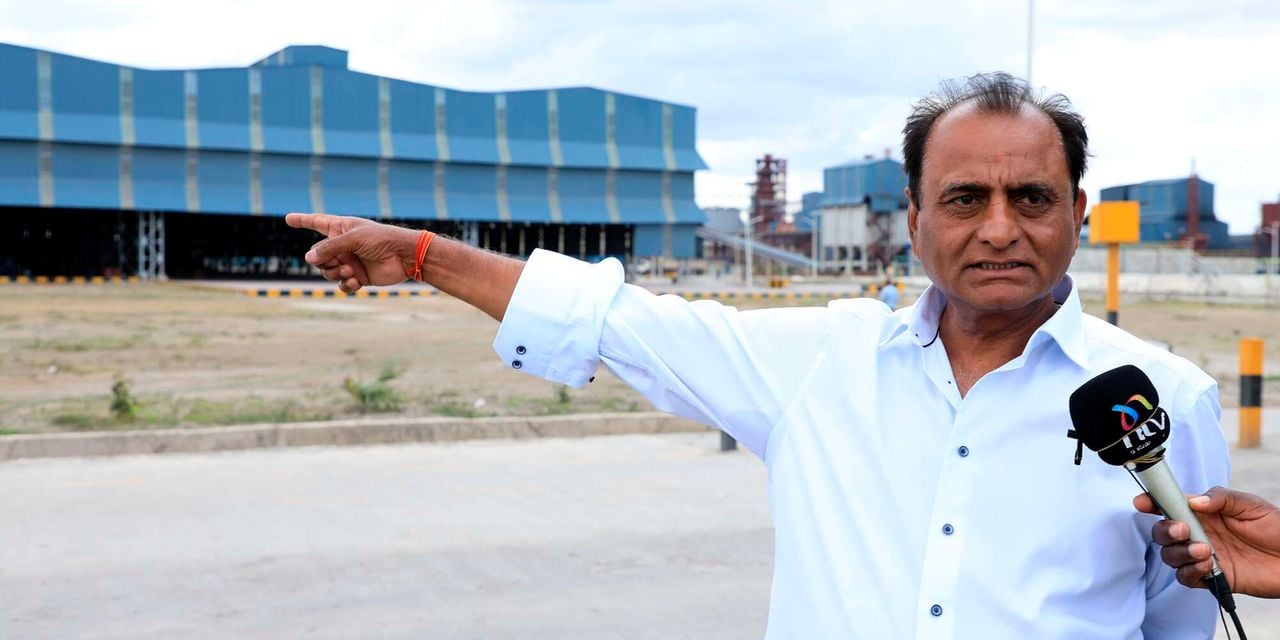Business
Kenya’s Construction Crisis: Engineers Sound Alarm Over Substandard Cement Flooding Market

Safety concerns mount as cement quality drops 25%, putting lives and property at risk
NAIROBI – Kenya’s construction industry faces a mounting crisis as engineers raise urgent concerns about substandard cement flooding the market, with some products showing up to 25% reduction in strength and weighing significantly less than advertised.
The Institute of Engineers of Kenya (IEK) has documented alarming quality deterioration across multiple cement brands, including those bearing the Kenya Bureau of Standards (KEBS) quality mark, raising serious questions about regulatory oversight in the country’s booming construction sector.
IEK President Shammah Kiteme revealed that engineers have recorded substantial drops in compressive strength across various cement brands, compromising the structural integrity of buildings and infrastructure projects nationwide.
“This is a grave threat to public safety,” Kiteme emphasized. “The built environment must meet certain performance thresholds to withstand both everyday use and natural shocks. When cement is compromised, then life and property are directly at risk from compromised structural integrity.”
The quality issues extend beyond strength concerns. Hardware stores and retail outlets are selling cement bags marked as 50kg that weigh significantly less—some as low as 45kg—representing a fraudulent practice that violates consumer rights while potentially compromising construction projects.
The discovery of substandard products bearing KEBS quality marks has intensified scrutiny of Kenya’s regulatory framework. The situation suggests either inadequate testing procedures or potential corruption within the certification process.
Consumer Federation of Kenya (Cofek) has previously linked building collapses in Nairobi and Kiambu counties to substandard construction materials, including cement. Their independent testing revealed that nearly all brands tested were underweight and failed to meet the recommended 32.5 unit strength standard.
“In some cases, the problem starts and ends with deceptive labeling – to take advantage of majority consumers who focus on the price – and not quality,” Cofek noted in earlier statements.
IEK is demanding comprehensive reforms to address the crisis, including:
– Immediate market audit : A complete review of all cement manufacturers and brands operating in Kenya.
– Enhanced surveillance : Random sampling from hardware stores and distribution points to verify quality and conformity.
– Mandatory weight verification : Enforcement of weight checks before cement dispatch, with penalties for non-compliance.
– Criminal investigations : Prosecution of individuals, including public officials and private sector players, complicit in compromising construction material standards.
The cement quality crisis poses significant risks to Kenya’s construction boom, which has been a key driver of economic growth. Substandard cement not only threatens immediate safety but could lead to premature structural failures, costly repairs, and potential loss of life.
For consumers, the underweight cement represents direct financial fraud, while the reduced strength could necessitate expensive retrofitting or reconstruction of affected structures.
Kiteme emphasized that addressing the crisis requires coordinated action across multiple stakeholders: “We require the collaboration of regulators, law enforcement agencies, manufacturers, and professional bodies to uphold standards, ensure compliance, and protect the lives of Kenyan citizens.”
The IEK has committed to continued monitoring of the situation and regular updates on progress or lack thereof. The organization stands ready to collaborate with stakeholders to restore integrity, safety, and professionalism to Kenya’s construction industry.
As Kenya continues its rapid urbanization and infrastructure development, ensuring the quality of basic construction materials like cement becomes not just a technical issue, but a matter of national safety and economic security.
The current crisis demands immediate, decisive action to prevent potential catastrophic consequences for the country’s built environment.
Kenya Insights allows guest blogging, if you want to be published on Kenya’s most authoritative and accurate blog, have an expose, news TIPS, story angles, human interest stories, drop us an email on [email protected] or via Telegram
-

 Grapevine7 days ago
Grapevine7 days agoAlleged Male Lover Claims His Life Is in Danger, Leaks Screenshots and Private Videos Linking SportPesa CEO Ronald Karauri
-

 Lifestyle1 week ago
Lifestyle1 week agoThe General’s Fall: From Barracks To Bankruptcy As Illness Ravages Karangi’s Memory And Empire
-

 Grapevine3 days ago
Grapevine3 days agoRussian Man’s Secret Sex Recordings Ignite Fury as Questions Mount Over Consent and Easy Pick-Ups in Nairobi
-

 Investigations2 weeks ago
Investigations2 weeks agoEpstein Files: Sultan bin Sulayem Bragged on His Closeness to President Uhuru Then His Firm DP World Controversially Won Port Construction in Kenya, Tanzania
-

 News2 weeks ago
News2 weeks agoAUDIT EXPOSES INEQUALITY IN STAREHE SCHOOLS: PARENTS BLED DRY AS FEES HIT Sh300,000 AGAINST Sh67,244 CAP
-

 Business2 weeks ago
Business2 weeks agoKRA Can Now Tax Unexplained Bank Deposits
-

 Investigations1 week ago
Investigations1 week agoEpstein’s Girlfriend Ghislaine Maxwell Frequently Visited Kenya As Files Reveal Local Secret Links With The Underage Sex Trafficking Ring
-

 News1 week ago
News1 week agoState Agency Exposes Five Top Names Linked To Poor Building Approvals In Nairobi, Recommends Dismissal After City Hall Probe















